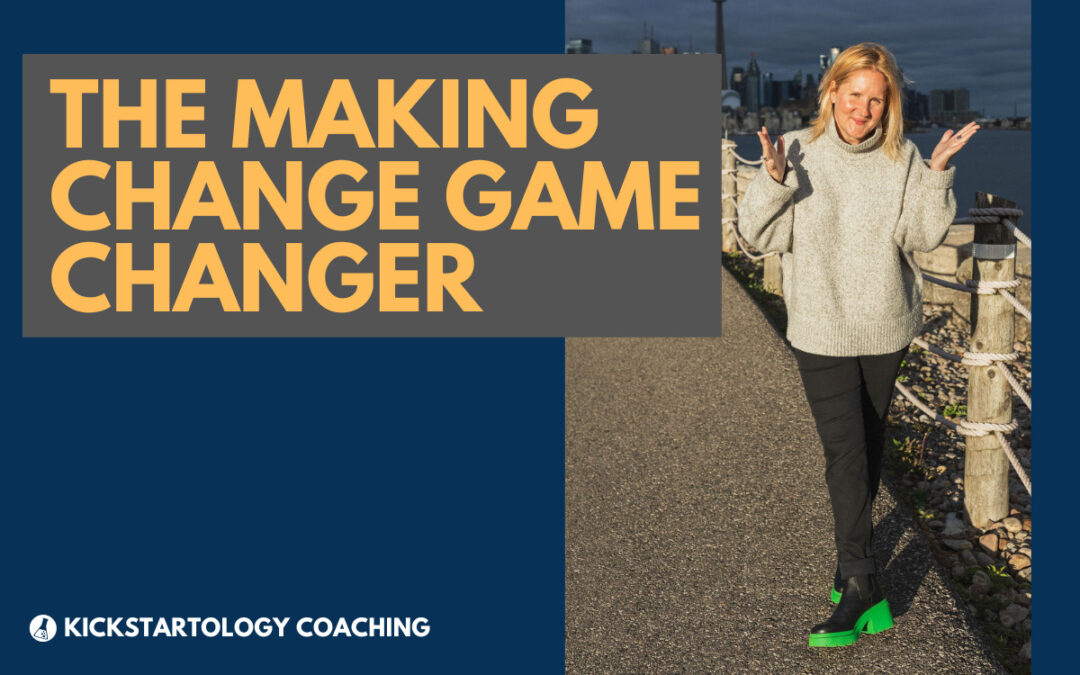Fastest Way To Drive New Action
If you want to change something and create new results fast, the first thing to do is NOT to make a list or schedule. These things feel like “taking action,” but you will never create something NEW with these activities.
When you begin by making lists or scheduling, you are practicing the intention to change in the future but not yet changing.
To create new results, you have to take new actions. And the fastest way to drive new action is with intentional thought work.
You might argue that making lists and planning is the thing you need to do to get yourself to take the new action, but when you start with lists and scheduling, the plans are still coming from your current way of thinking. You will know you are doing this if these plans are heavily reliant on willpower and motivation or if you have tried this in the past but not followed through.
If you want faster results with less trial and error, the decisions that need to be made to create change require a new way of thinking.
Making Change With Intentional Thought
When you approach change beginning with intentional thought this is what’s going to happen, you’re going to:
- Uncover the thoughts that are creating your current results and identify the ones standing in your way
- Identify subconscious thought errors and limitations
- Practice creative exploration of possible paths toward the desired results
- Examine the big picture AND what’s going on in the weeds to make sure that your decisions are aligned with your long-term intentions and desires, as well as your current day-to-day reality
- Grow your desire and your commitment to creating this change, as well as the resilience to work through ups and downs along the way
What does that mean? Intentional thought work makes it easier to get out of your own way and get into focused action without relying on willpower and motivation.
It trains us to uncover things that we didn’t even know we didn’t know and the thoughts we didn’t know we needed. From there, we make different decisions, and change is inevitable.
It’s the difference between rolling a boulder up a hill and solving a puzzle.
The Biggest Challenge
Doing intentional thought work isn’t rocket science, but if it’s a new way of doing things, there’s a learning curve. Building the practice of using the tools consistently and not falling back into old patterns is the biggest challenge for most. The shift doesn’t happen overnight.
Kickstartology Coaching is like a personal trainer for a well-managed mind. We train you using the simplest framework and the best tools out there so that you start getting breakthroughs fast. The program, which integrates live coaching, individual study, accountability, and community, is designed to adapt to your specific needs and obstacles easily. It works for beginners who want to learn how it works and try it out, as well as for those who want to take their thought work to the next level and create huge results.
Once you experience the impact of using thought work to create the results you want, you will never want to go back. You’re going to feel more in control, more connected, more certain, and you’re finally going to figure out what’s actually possible. And it’s probably even better than you can imagine.
P.S. If you want some help figuring out the next part, book a free coaching exploration call. We’ll talk about what’s going on and whether group coaching or 1-on-1 coaching fits. No pressure. Just clarity.
Not ready to talk?
Start with my FREE mini starter course:
KICKSTART: THE FIRST STEP
Make the decision that changes everything else.
Clarity, commitment, and forward motion. Ten minutes a day. Starting now.
How to Stop Being Hard on Yourself – ADHD
Don’t have time? The brief: If you have ADHD, being hard on yourself can feel necessary, but it's just a pattern your brain has practiced for years. Self-compassion doesn't mean giving up. It means being honest enough to stop making things harder. Catching it, zooming...
I’m Feeling Untethered, and So Are a Lot of Smart Women I Know
Don’t have time? The brief: Safe mode can become a long-term habit that looks functional but quietly disconnects you from yourself. Drifting often happens gradually, through familiar routines that seem harmless until they flatten everything. Reconnection starts when...
The Six Types of Procrastination That Trick Smart People Every Day
Don’t have time? The brief: You’re not putting things off because you’re lazy or disorganized. You’re regulating discomfort. There are six distinct types of procrastination. Each one offers short-term relief that creates long-term mess. You don’t need better habits....







